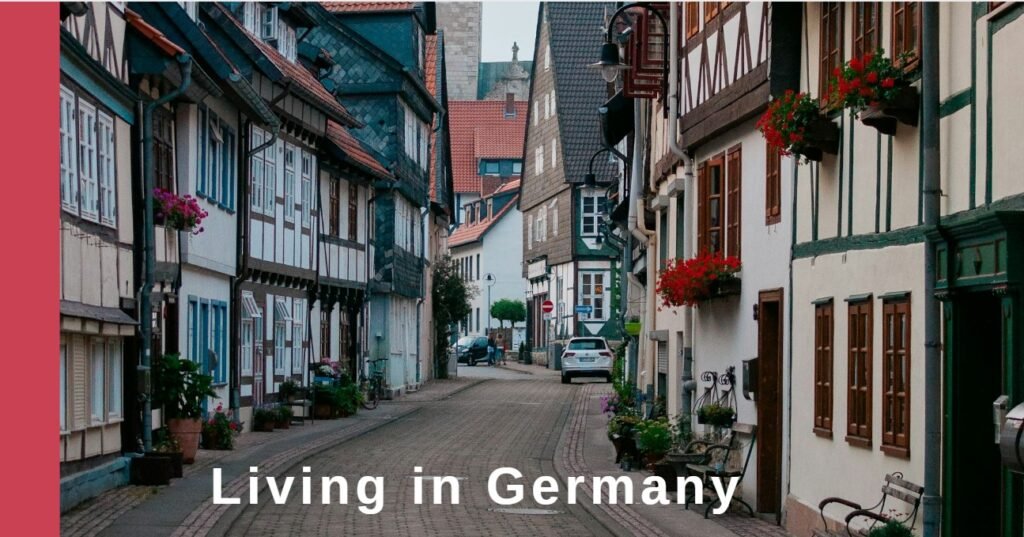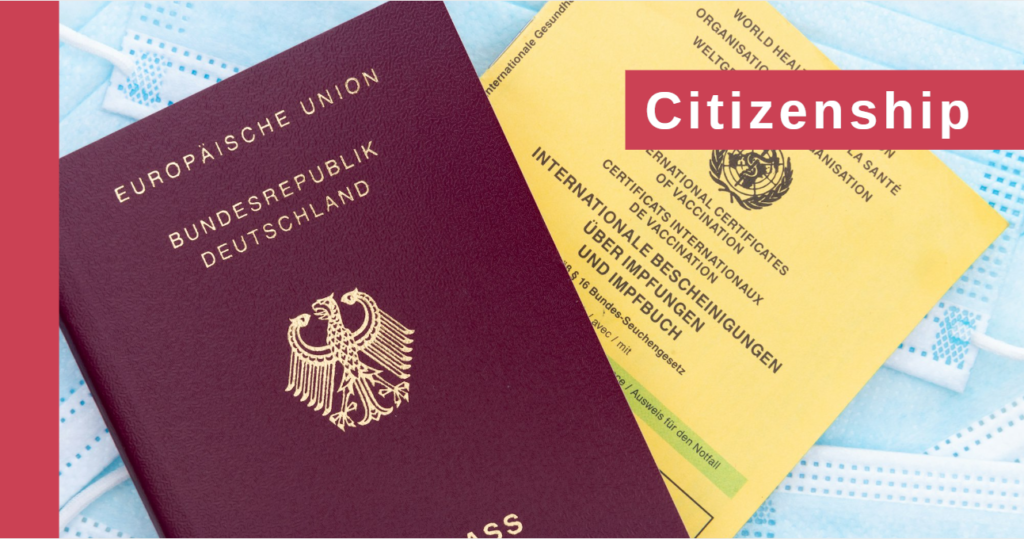
Why Study and Live in Germany
Many students dream of studying in Germany because of its diversity, inclusive values, and high standard of living. Germany is internationally recognized as one of the best countries to live and study. It boasts natural beauty and wildlife, so take the chance to explore while you’re here!
Scholarships for International Students
Many scholarships are available for international students, particularly those provided by the DAAD (German Academic Exchange Service). Those scholarships can significantly ease the financial burden of studying abroad.
Higher Education Institutions
Germany offers various higher education institutions, including colleges, technical schools, and universities. These institutions grant undergraduate and postgraduate degrees, such as bachelor’s and master’s degrees, ensuring a wide range of academic options.
Education System in Germany
Germany’s economy is the largest of the European Union and happens to be the third largest in the world. It is home to some of the most renowned researchers in history, like Albert Einstein, Max Planck, and Alexander von Humboldt. The country’s education system is robust, producing world-class researchers and professionals.

Living in Germany
A Country of Hope and Innovation
Germany is where people go to succeed. It’s a country of hope, success, research, and innovation. The beautiful landscapes, numerous castles, and interesting architecture make it an attractive destination for expats.
Navigating Bureaucracy
After navigating the bureaucratic process of obtaining your residence permit, work permit, or citizenship, you can explore what Germany offers. Germany is known as the European land of opportunities, and its cities and towns are clean and well-organized.
Life in Germany
Living in Germany has its own set of characteristics. Let’s explore the best and most affordable places to live and the overall cost of living.
The Currency
The Euro is Germany’s official currency. If you come from a country with a different currency, you’ll need to exchange your money for Euros. Alternatively, you can make use your debit or credit card to convert the charges automatically.
The Language
Germans primarily speak German. While many also speak English, learning some basic German phrases is beneficial. Knowing how to say “hi,” “please,” and “thank you” in German can go a long way. Language schools in every city or town offer courses to help you learn German.
Peace
Life in Germany can be busy, but it’s generally peaceful and quiet. Except for the lively clubs, which are famous for techno music, Germans appreciate their silence. The country has low corruption, and job opportunities are abundant.
Love for Rules
Germans are known for their love of rules. They adhere strictly to both written and unwritten laws. If you jaywalk or cross the street during a red pedestrian light, expect to get a stern look or even a scolding. It’s essential to familiarize yourself with the local rules and regulations.
Better Worker Rights
Employees are highly valued in Germany. Numerous organizations protect workers’ rights, ensuring that complaints are heard and addressed. You won’t be exploited and enjoy fair treatment at work.
Customer Service
Customer service in Germany might be different than you’re used to if you’re from a country where the customer is always right. However, you’ll find that Germans are straightforward and efficient in their service.
Apartment Furnishing
Finding an apartment can be challenging and expensive. When you move in, you might find it unfurnished. Compared to some countries, German apartments often need more basic fixtures. Be prepared to buy your kitchen appliances and other furnishings, which you can find at local stores or in used furniture shops.
Good Public Transport
Germany’s public transport is reliable and clean. Trains and buses are punctual, making commuting efficient. Using public transport is a great experience, and being late because of it is rarely an excuse.
Cities Built for Bikes
German cities are bicycle-friendly, with specially designed lanes for bikes. Cycling is a cheap and healthy mode of transport, and cyclists are everywhere.
Recycling Friendly
Germany takes recycling seriously. There are specific bins for different types of waste, and proper recycling schedules must be followed. It’s an environmentally friendly country, so brushing up on your recycling skills is essential.
Education System
Germany offers a well-ordered education system. University tuition is often free or very low, making higher education accessible. Unlike in the U.S., where students graduate with significant debt, in Germany, you can start earning without the burden of repaying large loans.
Everything Closes Down on Sunday
Be prepared for everything to shut down on Sundays. Stores close on Saturday evening and reopen on Monday morning. Sunday is a day of rest (or drinking), so plan your shopping to avoid being caught without essentials.
Travel Opportunities
Germany’s central location in Europe makes it an excellent base for travel. Travelling within Europe is cheaper and quicker, allowing you to explore different cultures and countries.
Food and Cuisine
Germany offers a wide selection of foods beyond the stereotypical sausage. There’s a wide variety of bread, baked goods, meats, and desserts. While comfort foods from your home country might be hard to find, you’ll have the opportunity to try many delicious German dishes.
Amazing Beer
Germany is famous for its beer. The selection is vast, and the quality is exceptional. You’ll have the chance to try numerous beer flavours, all at a reasonable price.
Best Places to Live in Germany
Choosing where to live in Germany depends on your needs and budget. Each city offers a unique atmosphere and opportunities. Some of the best cities to live in, based on job opportunities and quality of life, include:
- Berlin: The vibrant capital is known for its cultural diversity and dynamic lifestyle.
- Munich: Famous for its high quality of life and robust economy.
- Frankfurt: A central financial hub with a cosmopolitan atmosphere.
- Hamburg: A beautiful port city with excellent infrastructure and job opportunities.
- Stuttgart: Known for its automotive industry and beautiful surroundings.
If you are on a tight budget, avoid moving to large, expensive cities like Berlin. Instead, consider more affordable options to live while getting established.
Germany offers high-quality education, a peaceful lifestyle, rich cultural experiences, and numerous travel opportunities. Whether you’re a student or a professional, living in Germany can be a rewarding experience.

Safety & Security in Germany
According to the 2017 Global Peace Index, Germany ranks among the top twenty safest countries in the world. The security situation in Germany is generally perfect, with a low crime rate. Surveillance cameras and security checks are commonplace in public facilities, on public transportation, and along streets, clearly indicated by signage.
Technological Advancements and Safety
Germany’s advanced technological infrastructure contributes significantly to its status as one of the safest places to live. The country is highly rated among international students due to its student-friendly environment, government policies, and robust rules and regulations. Germany’s calm and peaceful atmosphere and technological prowess make it a secure place to call home. Additionally, Germany has largely been untouched by severe natural disasters, making it a safe place to live.
Political and Social Stability
Germany boasts a stable government and political environment. The population is educated and advanced, leading to a smoothly functioning society. The following points highlight Germany’s excellent safety and security:
- Global Peace Index: Germany is one of the most peaceful countries in the world.
- Rankings: Ranked 15th out of 153 participating countries, above France and Italy.
- Political Stability: Germany is known for its strong political stability.
- Respect for Rights: Germans deeply respect human and civil rights.
- Happiness Levels: 90% of residents report being very or quite happy.
These findings are supported by the 2010 “Integration Barometer” survey of German citizens, which showed that 95% of people with foreign roots are happy in Germany. If you plan to study in Germany, you are on the right track for endless opportunities and a great career.
Evidence of Safety in Germany
Several indicators prove that Germany is safe for travellers and residents:
- Tourist Destination: Germany is the world’s 7th most active tourist destination.
- Tourist Services: It offers a sophisticated public transport network, including fast trains, underground trains, buses, and taxis, as well as numerous hotels, guest houses, restaurants, cafes, theatres, and parks.
- Tourism Growth: More than 25 million tourists visit Germany annually, with domestic and foreign tourism reporting 450 million overnight stays in 2016.
- Economic Contribution: The tourism industry generates about 3.2% of Germany’s GDP through small and medium-sized tourism projects such as hotels and guesthouses.

Health Facilities
International students in Germany are required by law to have some form of healthcare coverage. Health insurance is compulsory for students planning to study in Germany. This requirement applies to all students, making it necessary to understand and arrange for health insurance before arriving in Germany.
Public Health Insurance
Germany mandates health coverage for those earning below €50,000 per annum. Public health insurance is available to international students at subsidized rates, typically costing about €80 per month. This insurance covers all foreseeable health care needs and remains valid until the student turns 30 or completes their 14th semester at university. Beyond these limits, the cost doubles to about €160 per month.
Private Health Insurance
Students can purchase private health insurance in Germany or their home country. While some universities may require public health insurance, many accept private insurance. It’s crucial to check the coverage details and minimum insurance requirements with the university.
Insurance from Home Country
Private insurance from countries like India is often recognized in Germany and can be more affordable. Students opting for this path should inform their university to ensure compliance.
Comparison: German vs. Home Country Insurance
While buying insurance from India is hassle-free and offers clear service coverage, opting for German public insurance is recommended due to its subsidized rates and comprehensive coverage, recognized across the European Union.
Arranging Health Insurance
Students can obtain health insurance provider details from the university’s international office. Upon arrival in Germany, they must contact a German health insurance provider for a certification letter, which is mandatory for university admission. Organizations like DAAD in India or regional student councils (Studentenwerk) offer special packages that include accommodation, meal tickets, and health insurance coverage.
Germany’s commitment to safety and security and its excellent education system and health facilities make it an ideal destination for international students. The country offers a peaceful, technologically advanced, and politically stable environment conducive to academic and personal growth.

Understanding Part-Time Work for International Students in Germany
One of the most appealing aspects of studying in Germany is the opportunity to work part-time. This helps with expenses and enhances the overall experience of living and studying abroad. Let’s delve into the details of part-time work for international students, exploring the legal aspects and the types of jobs available.
Laws Governing Student Part-Time Jobs in Germany
Being an international student in Germany, you can work part-time alongside your studies. Here are the key regulations you need to be aware of:
Work Hours and Limits
- Annual Work Limit: You can work up to 120 full days or 240 half days per year. This limit may vary depending on the region, with cities experiencing higher unemployment rates allowing more working days.
- Term-Time Restrictions: Generally, students are allowed to work up to 20 hours per week during the semester. During vacations, you are permitted to work full-time.
Work Permit Requirements
- Permit Necessity: You would need work permit and can apply for it, from the “Agentur für Arbeit” (Federal Employment Agency) & the foreigners’ authority, detailing your allowed work hours.
- Preparatory or Language Courses: Stricter regulations apply if you are enrolled in a preparatory course or language program. You can only work during lecture-free periods with explicit permission from the foreign authority.
Taxation Rules
- Tax Exemption: Students earning less than €450 per month do not pay taxes or social security contributions. Additionally, working less than 50 continuous days in a year is tax-exempt.
- Health and Social Insurance: Working over 20 hours a week generally requires payment of health, unemployment, and nursing care insurance, which is against most university policies.
Compliance with Federal Laws
- Adherence to Regulations: Complying with German laws is crucial. Violating these rules can lead to expulsion from the country. Always ensure your permit is in order and stay updated with any changes in regulations.
Types of Part-Time Jobs Available
Germany offers a variety of part-time job opportunities for students. Here’s a look at some popular choices:
University Jobs
- Teaching/Research Assistants: These positions involve assisting professors with grading, tutoring, research, or library work. These jobs are well-paid and highly sought after. Keep an eye on university notice boards and departmental announcements to apply early.
Hospitality and Retail
- Cafeteria and Bar Staff: Many students opt for waiting or catering jobs in cafes, bars, and restaurants. These positions are popular because they pay well and offer opportunities to explore the city, meet new people, and earn tips.
Tutoring
- English Tutors: Teaching English to German students is another lucrative option. Proficiency in the language is essential, and while native speakers from English-speaking countries are preferred, there are opportunities for others as well.
Industrial and Production Jobs
- Production Assistants: These well-paid jobs offer valuable experience, making them a good option for students seeking relevant work experience post-graduation. Local newspapers and job portals are good places to find such positions.
Earnings and Financial Considerations
Average Wages
- Hourly Rate: Students typically earn between €5 to €15 per hour, approximately €450 per month. Wages are generally higher in larger cities, where the cost of living is also higher.
- Tax-Free Earnings: The standard tax-free income limit is €8,354 per year. Research assistants earn above this threshold and are exempt from taxes and social security contributions.
Working Hours and Pay
- Hourly and Monthly Earnings: On average, part-time jobs for students in Germany pay well, considering the local cost of living. Balancing work hours to avoid exceeding the tax-free threshold and maintaining compliance with university rules is crucial.
Conclusion
Part-time work in Germany offers international students a valuable opportunity to gain work experience, enhance their resume, and support their studies financially. By understanding the regulations and exploring the variety of available jobs, you can make the most of your time in Germany. Whether you choose to work on campus, in hospitality, or as a tutor, Germany’s diverse job market has something to offer for every student.

Obtaining Permanent Residence
Germany has been a popular destination for individuals looking to study, work, and live. Understanding the pathway to permanent residence and eventual citizenship is crucial for anyone considering making Germany their long-term home. This article will explore the German settlement permit, the requirements for obtaining it, and the process of becoming a German citizen.
Permanent Residence (P.R.) in Germany
A German settlement permit grants permanent residence to foreigners lawfully residing in Germany for several years. This permit allows you to live, work, study, and bring your family members to Germany without any time restrictions. After spending eight years in Germany with a settlement permit, you can apply for naturalization to become a German citizen.
German Settlement Permit for Foreign Graduates
If you have come to Germany for higher education, you can qualify for a settlement permit as a graduate of a German university. Here are the essential requirements:
- Graduation from a Recognized Institution: You must be a graduate from a state, state-approved, or equivalent institution of higher education in Germany.
- Relevant Work Experience: You must have worked in Germany for at least two years after graduation, and your job must match your academic qualifications.
- Valid Residence Permit: After graduation, you should have held a residence permit for work, self-employment, or an E.U. Blue Card and consistently paid into the pension insurance system.
- Clean Criminal Record: You must not be involved in any criminal activities during your stay.
Required Documents for a Settlement Permit
When applying for a settlement permit as a foreign graduate, you need to provide the following documents:
- Completed Application Form: Submit the “Antrag auf Erteilung der Niederlassungserlaubnis.”
- Valid Passport: Your passport must have a valid residence permit.
- Biometric Photograph
- Degree Certificate: Issued by a recognized German higher education institution, showing the level of your academic qualification (bachelor, Master, PhD, diploma).
- Employment Proof: Evidence of employment for the past two years, including employment contracts and proof of paid pension insurance.
- Accommodation Proof: Documentation of your accommodation and registration.
- Professional License: If applicable, especially for regulated professions in Germany.
- Language Proficiency: A recognized certificate showing German language proficiency at the B1 level of the CEFR.
- Financial Stability: Proof of sufficient means to cover living and accommodation costs.
- Declarations: Statements regarding any previous convictions and social security benefits received.
- Employment Details: For employees, provide the current employment contract, salary slips, and a certificate of employment. For self-employed individuals, include an audit report, evidence of business workspace, and rental or purchase contracts.
Application Submission
Submit your application to the local Foreigner’s Registration Office. Depending on your nationality and circumstances, different departments may handle your application. The fee for applying for a settlement permit is €135, and €200 if you are self-employed.

Attaining German Citizenship
Many individuals aim to obtain German citizenship due to its numerous benefits. Germany has complex citizenship laws, but if you can understand the requirements and procedures, they will help you navigate the process.
Benefits of German Citizenship
As a German citizen, you gain several rights and freedoms, including:
- The right to vote
- Free movement within the E.U.
- The right of assembly and association
- Consular protection
- Unrestricted access to job opportunities
- Eligibility to become a civil servant
In addition to these rights, you also have obligations such as integrating into society, obeying all laws, and potentially serving in the military.
Types of German Citizenship
There are three main ways to obtain German citizenship:
- Naturalization: After meeting specific residency and other requirements.
- Right of Blood (Jus Sanguinis): If you are a descendant of German citizens.
- Right of Soil (Jus Soli): If you are born in Germany.
Naturalization Requirements
To qualify for naturalization, you must meet the following criteria:
- Residence: Have lived in Germany on a residence permit for at least eight years (7 years if you attended an integration course or six years in exceptional integration circumstances).
- Language Proficiency: Demonstrate German language skills at the B1 level.
- Financial Stability: Be financially self-sufficient.
- Law-Abiding: Have no criminal record.
- Citizenship Test: Pass a test on German living, society, rules, and laws.
- Renounce Previous Citizenship: Give up any previous citizenship if it is impossible due to the laws of your original country.
Applying for Naturalization
Follow these steps to apply for naturalization:
- Obtain an Application Form: You can get the form from your local immigration office, city council, regional district office, or town council.
- Compile Required Documents: Gather all necessary documentation, including proof of residence, financial stability, language proficiency, and other relevant documents.
- Pass the Citizenship Test: This test includes questions on German life and laws. Passing the test grants you a naturalization certificate.
German Citizenship by Marriage
If you are getting married to a German citizen, you can apply for naturalization after being married for at least two years and living in Germany for at least three years. You must still meet all other naturalization requirements.
German Citizenship by Descent
You can obtain citizenship if you have at least one German parent. Your parents must register you with German authorities before you turn one year old. If your parents have different nationalities, you must choose between them and the German nationality between 18 and 23.
German Citizenship by Birth
If you are born in Germany to non-German parents, you can acquire citizenship if:
- At least one of your parent has lived in Germany for at least eight years before your birth.
- One parent had a permanent residence permit at the time of your birth.
It would help if you chose between your parents’ nationality and German citizenship between 18 and 23.
Renouncing German Citizenship
Germany usually does not allow its citizens to renounce their citizenship to avoid obligations. However, you can lose your citizenship if:
- You can request it and obtain citizenship in another country.
- A foreigner adopts a German child.
- You join another country’s military without permission.
- It would help if you informed German authorities to acquire another citizenship.
- Your citizenship is revoked due to illegal activities.
Re-Naturalization
You can apply for re-naturalization if you have lost your German citizenship for reasons other than criminal activity. The process is similar to initial naturalization, requiring you to meet all standard requirements.
Conclusion
Navigating the pathway to permanent residence and citizenship in Germany involves understanding various requirements and procedures. Whether you are a foreign graduate seeking a settlement permit or looking to become a naturalized citizen, this guide provides the essential information to help you achieve your goal. With the proper preparation and compliance with German laws, you can make Germany your long-term home.
Top Reasons to Study in Germany
Germany has become a popular destination for students worldwide. Known for its high-quality education, world-class universities, and affordable costs, Germany offers many opportunities for students seeking a top-tier education. Here are the top reasons why you should consider studying in Germany:
High-Quality Education
Germany is known for its high educational standards. Degrees obtained from German institutions are globally recognized and respected. Universities in Germany ensure their programs meet stringent quality standards through regular reviews and accreditations. Such commitment to excellence ensures that students receive a superior education that prepares them for successful careers worldwide.
World-Class Educational Institutions
Germany is home to some of the world’s leading universities. These institutions are internationally recognized and offer various programs to meet the diversed educational needs of both local and international students. Universities such as the Berlin Institute of Technology, the University of Stuttgart, and the University of Hamburg are just a few examples of the high-calibre institutions you can find in Germany.
Wide Range of Programs
German universities offer various undergraduate, postgraduate, Master’s, and Ph.D. programs across multiple fields. With thousands of programs available, you can choose to align perfectly with your academic and career goals. Whether you’re interested in engineering, humanities, sciences, or business, you’ll find a program that suits your interests and aspirations.
Affordable Education Costs
Affordability is one significant advantage of studying in Germany in Comparision to countries like the USA, Australia, and other popular education destinations, Germany’s education cost is significantly lower. Many public universities in Germany charge very little to no tuition fees, making it an attractive option for international students.
Simple Student Visa Process
Germany offers a relatively straightforward and fast student visa process, especially for Indian students. The streamlined application procedure ensures you can focus on your studies without being bogged down by bureaucratic hurdles. This ease of access makes Germany an even more appealing choice for students worldwide.

Top Universities in Germany
Here are some of the top universities you should consider when planning to study in Germany:
- Berlin Institute of Technology (Technische Universität Berlin): Located in Berlin, TU Berlin is a research university with many international students. It is known for its vital programs in engineering and technology.
- University of Stuttgart: The University of Stuttgart founded in 1829, is one of Germany’s oldest technical universities. It is highly ranked for its civil, mechanical, industrial, and electrical engineering programs.
- University of Hamburg: Established on March 28, 1919, the University of Hamburg is consistently ranked in the top 200 universities worldwide as per the Times Higher Education Ranking. It offers many programs and is known for its research excellence.
Conclusion
Germany is a top destination for international students due to its high-quality education, world-renowned universities, affordable costs, and straightforward visa process. With many programs to choose from, studying in Germany can provide you with the education and experience needed to excel in your future career. Make the intelligent choice and consider Germany for your higher education journey.
